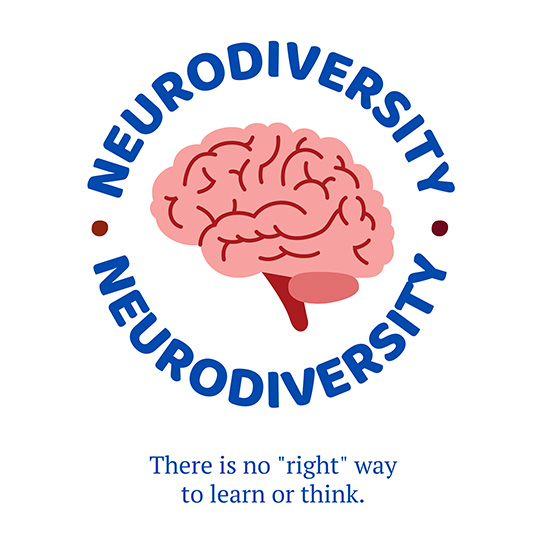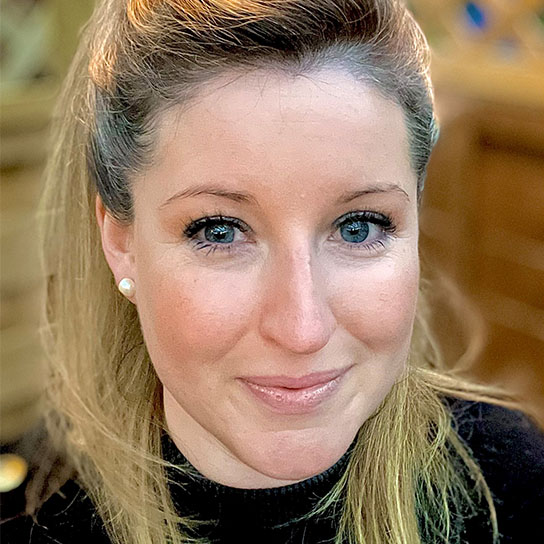Emily has been part of the RSA team for 11 years in Underwriting and Pricing, and is passionate about Diversity, Equity and Inclusion (DEI). She sits on the RSA DEI Council, is a mentor on RSA’s female talent programme, Step Forward, and is the Executive Sponsor of the RSA Ability Network, which supports people with seen and unseen disabilities.
As Group Ambassador, Emily is taking a leadership role in helping IFC become an employer of choice for neurodiverse employees.
We spoke to Emily on why she took on the role and what it means to her:
I have Attention Deficit Hyperactivity Disorder (ADHD) and Dyslexia, and my sister is profoundly dyslexic and has Dyscalculia and Dyspraxia. So, I’ve experienced and seen first-hand the many challenges neurodiverse people face including the stigmas and outdated beliefs that some people hold. And unfortunately, my experiences have also shown that too often the focus is on what deficits we may have.
But I’ve learnt that with the right strategies and in the right environment, being neurodiverse can be a huge advantage. I recently saw an article where Richard Branson, who is dyslexic, described it as his superpower, and older me can identify.
I see this role as the perfect time to start to reframe what it means to be neurodiverse and recognise the huge strengths neurodivergent people have, including the resiliency of growing up in an environment not designed for you. I’m really excited because this role gives neurodiversity a platform at IFC and shows IFC’s commitment to becoming an employer of choice for neurodiverse talent.
For some people, this might be the first time they are learning about the term “neurodiversity.” Can you explain neurodiversity in your own words?
It’s all around how certain people process information and see the world in a different way. Within the umbrella of neurodiversity, there’s Dyslexia, ADHD, Dyspraxia, Dyscalculia, and Autism Spectrum Disorder, to name just a few, and it’s very common for someone to have more than one of these conditions.

There are certain areas where neurodiverse individuals absolutely excel, and others where they struggle. This is often referred to as a spiky profile. When my ADHD was diagnosed, my doctor said I had a brain like a Ferrari and the concentration span of a gnat; though if something really interests me, I hyperfocus meaning I become so engrossed that I block out the world around me. With the right environment and strategies, I can play to my strengths, but without those supports I can really struggle.
What are some of the most important things you will focus on in 2023?
First, I want to reframe how people think about neurodiversity. Right now, we are leading with people’s weaknesses and shortcomings instead of their strengths.
Secondly, I want to ensure that we have a neuro-inclusive environment, which studies have shown not only benefit neurodiverse individuals but all employees. As part of this, it is so important that people feel safe to share if they have different abilities and leaders feel confident to have those conversations and have the right tools and supports to make suitable adjustments to set everyone up for success.
Lastly, we will be doing some work on skills matching. We know that neurodiverse people often excel in certain areas and so if we have them in the right roles, with the right adjustments, they can really outperform.
It’s Neurodiversity Celebration Week. Why do you think this is an important occasion to recognise?
It’s a great way to celebrate people within the neurodiverse community. It’s also a fantastic opportunity to take a step back and look at how we can change our environment and beliefs to unlock people’s full potential.
Being neurodiverse can be a superpower, but often the media and society would have you believe it is quite the opposite. I encourage everyone to engage positively and ask questions to better understand and create positive beliefs around neurodiversity. By learning more, we can break down stigmas and create better understanding of individuals in this community, helping them to thrive.
This is such an exciting journey to be going on and I feel privileged to be able to take on this role for IFC and contribute to unlocking some of the benefits associated with a more neuro-inclusive world.
